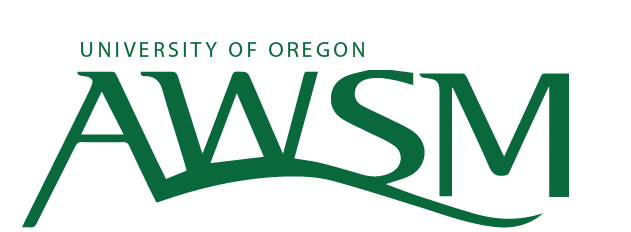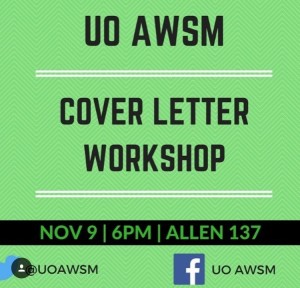By Linden Moore
On Friday, May 12, UO AWSM hosted its second celebrity speaker in two years, sports journalist Julie DiCaro. The Chicago-based journalist is known for openly speaking out about opportunities for women in sports and the equal treatment in a male-dominated industry. In addition, she shared her experiences with sexual violence and gave some insight as to how women deal with the life-changing trauma. We had an opportunity to sit down with Julie and here are ten takeaways from what we learned
1. You don’t have to major in journalism to have a successful career
“I was a journalism major in school and I wanted to be a sports reporter but at the time there weren’t women that I saw doing that,” she said. “I was practicing law when the Chicago Tribune asked if they could pick up my blog and distribute it then I let them know I wasn’t happy at my job and one day they said there was an opening for someone to run their blog network. I got an email from WGN radio and they wanted me on it so I backed into it but a lot later than I thought I would.”
2. There isn’t one definition for “sexism”
“It’s always jarring when you hear someone say something that can be interpreted as sexist,” she said. “There’s a difference between what men think is sexist and what women think as sexist guys they’ll say something and say, ‘I’m just joking around’ but for women that hits home.”
3. Sports has turned into a validation of opinions
“Sports radio is like the bastion of people who say things publically it’s okay,” she said. “When I go to colleges and see so many women interested in the sports industry I’m excited for that and I hope they’ll work in an industry the way that sports fan base looks then having it be all guys.”
4. We need strong male allies
“I’m glad I have those guys in my life who stick up for you on Twitter, who put women front and center to amplify their voices instead of trying to talk over them I wish all guys were like those guys,” she said.
5. The More than Mean campaign kick started a conversation, which means we can do something, too.
“For more than Mean, Sarah and I felt that we had our chance to have our say in an impactful way,” she said. “The backlash was formidable for a while but the support outweighed the it. Everything changed after that in terms of me being able to let a lot of it go. The awards aren’t the reason we did it but it’s validation that it mattered to people so that’s really rewarding. I also had trolls reach out and apologize to me after the video came out.”
6. Twitter is a large vortex that can be centered with gendered and sexual comments
“There’s a lot of women in Twitter screaming about what’s happening to them all the time,” she said. “But the way women are harassed online as very different is very gendered and sexualized and that’s what so alarming,” she said.
7. Domestic violence survivors don’t have one definition for rape
“It takes most women in those situations seven times of trying to leave if they get out at all it’s already a complex situation to get someone to leave and adding one more thing in there beyond what’s acceptable in civilized society,” she said. “Everything that’s listed, it’s like being a woman is a preexisting condition it seems so simple if you’re not in that situation but when you spend time with dv victims you realize how much damage has been done to people’s psyches and how they see the world.”
8. Screenshotting tweets can help you in protecting yourself against internet trolls
“I screenshot them because so many of them get deleted and when you talk about them people accuse you of exaggerating it,” she said.
9. Prosecutors drop domestic violence charges half the time
“Having worked with domestic violence victims, 50% of the times they drop the charges,” she said. “It’s hard to tell people to report it when I didn’t report my own rape, so I know that feeling of there’s no way in hell that I can do this.”
10. Rape is NEVER a woman’s fault, it’s not a punishment for making a mistake
“We convince ourselves that it was our fault,” she said. “Punishment for being an idiot college student isn’t rape. If a woman doesn’t give consent, it’s rape.”



